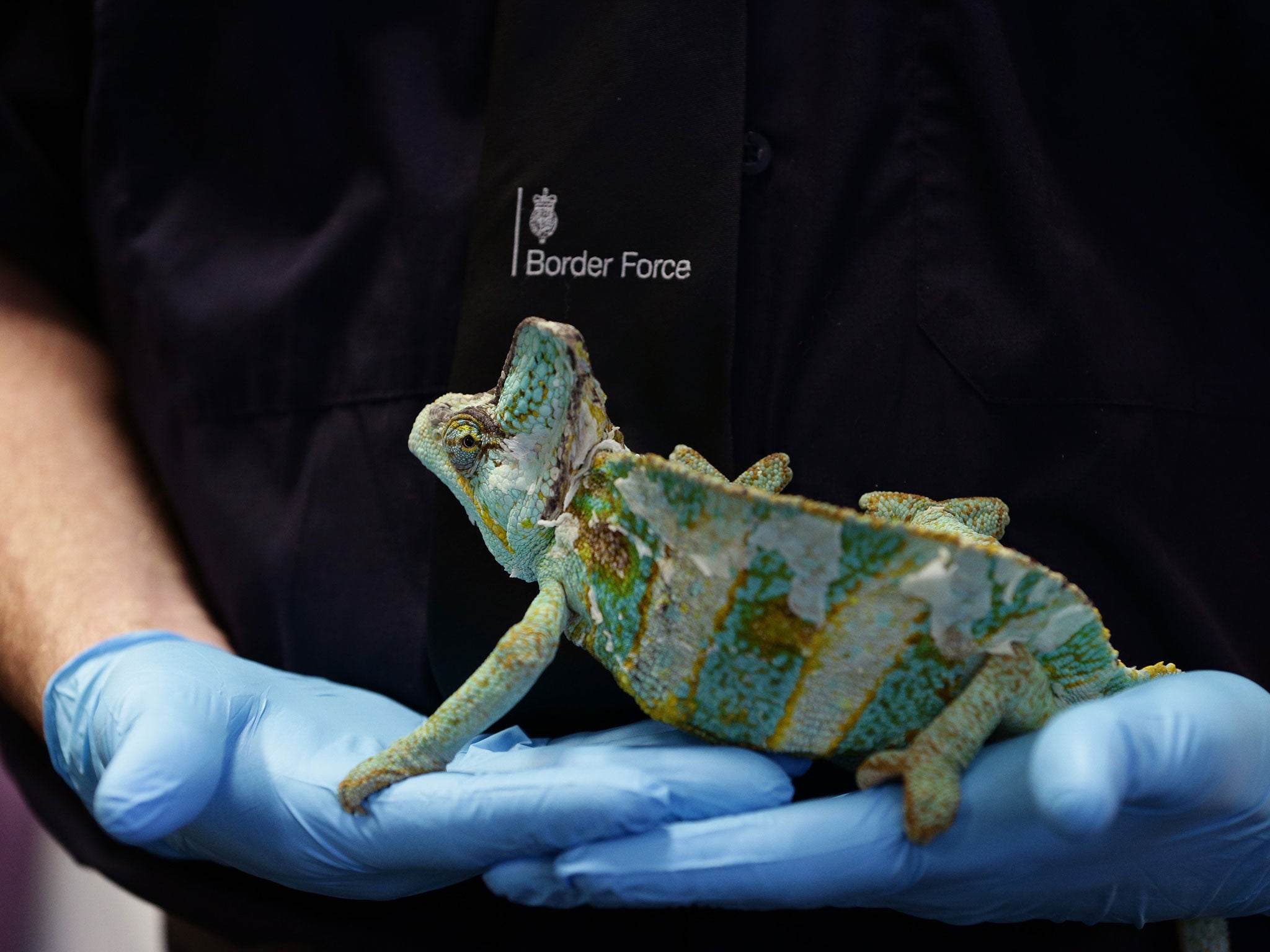11 black bear claws and 400 live tortoises: the endangered animals and plants seized by the UK Border Force
Authorities seized many animals and plants because people did not have the right documentation to own an endangered animal

With a luminescent green chameleon perched on his shoulder, Tim Luffman could be a zoo keeper.
Yet Mr Luffman is part of Border Force's Convention on International Trade in Endangered Species (Cites), and his chameleon friend was found in a handbag not a enclosure.
The lizard was one among thousands of items seized by the UK Border Force as part of a worldwide operation targeting the illegal trade of endangered animals and plants.
The chameleon Mr Luffman takes care of as he fields question from the media is not the most unusual collected: 11 black bear claws, 400 live tortoises, 10,000 sea horses and 166 turquoise blue geckos were also among the haul.
It's not just what items are found but where they are found: scorpions in packages and polar bear skin in luggage. 62 countries cooperate during the six-week international crackdown, with Thailand seizing the largest amount of elephant ivory in their history.
In the UK, over 300 animals and plants were found at ports and airports across the British Isles, with Grant Miller, head of Cites, saying the country was an important hub for gangs and smugglers of endangered animals.
Yet rather than this operation solely being about criminals, authorities seized many of the animals and plants because people did not have the right documentation to own an endangered animal or had no idea about what the rules were for importing and exporting plants and creatures.
Endangered animals and plants at UK border
Show all 10Mr Miller said: "We have to recognise there is a perfectly legal wildlife trade. Our job is to find the criminality within that - where people do not comply with the regulations, from getting the permits to the organised criminals who will take critically endangered iguanas and put them into socks and hide them in suitcases.
Mr Luffman said, "We're there predominantly to catch major criminals and smuggling gangs, we don't want to take pets off people.
"Only last week we had 400 tortoises come in. They were suitably packed for travel but the person didn't have the right documentation.
"Wildlife smuggling has links with terrorism, certainly out in Africa with the ivory and rhino poaching. On a global scale we're talking about a huge amount of money and it goes hand in hand with other criminality."
Other seizures across the world included over 1,102lb (500kg) of frozen eels in Poland and 16 whale ribs seized in the Netherlands.
Additional reporting by the Press Association.
Subscribe to Independent Premium to bookmark this article
Want to bookmark your favourite articles and stories to read or reference later? Start your Independent Premium subscription today.

Join our commenting forum
Join thought-provoking conversations, follow other Independent readers and see their replies